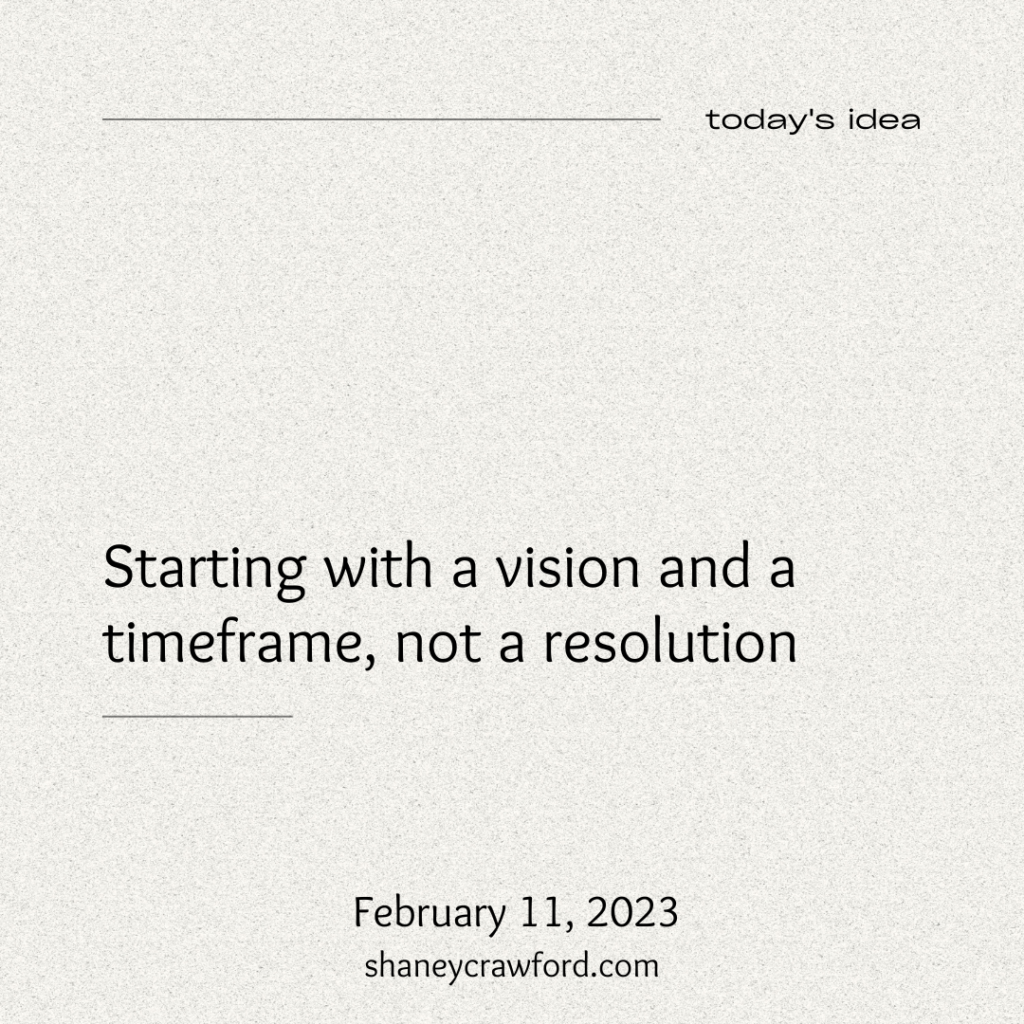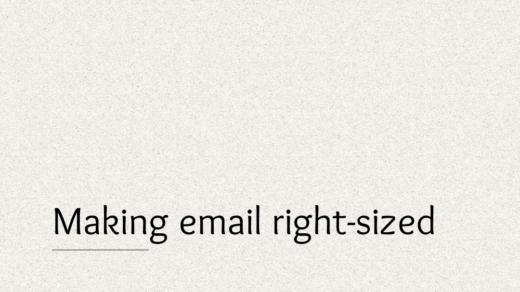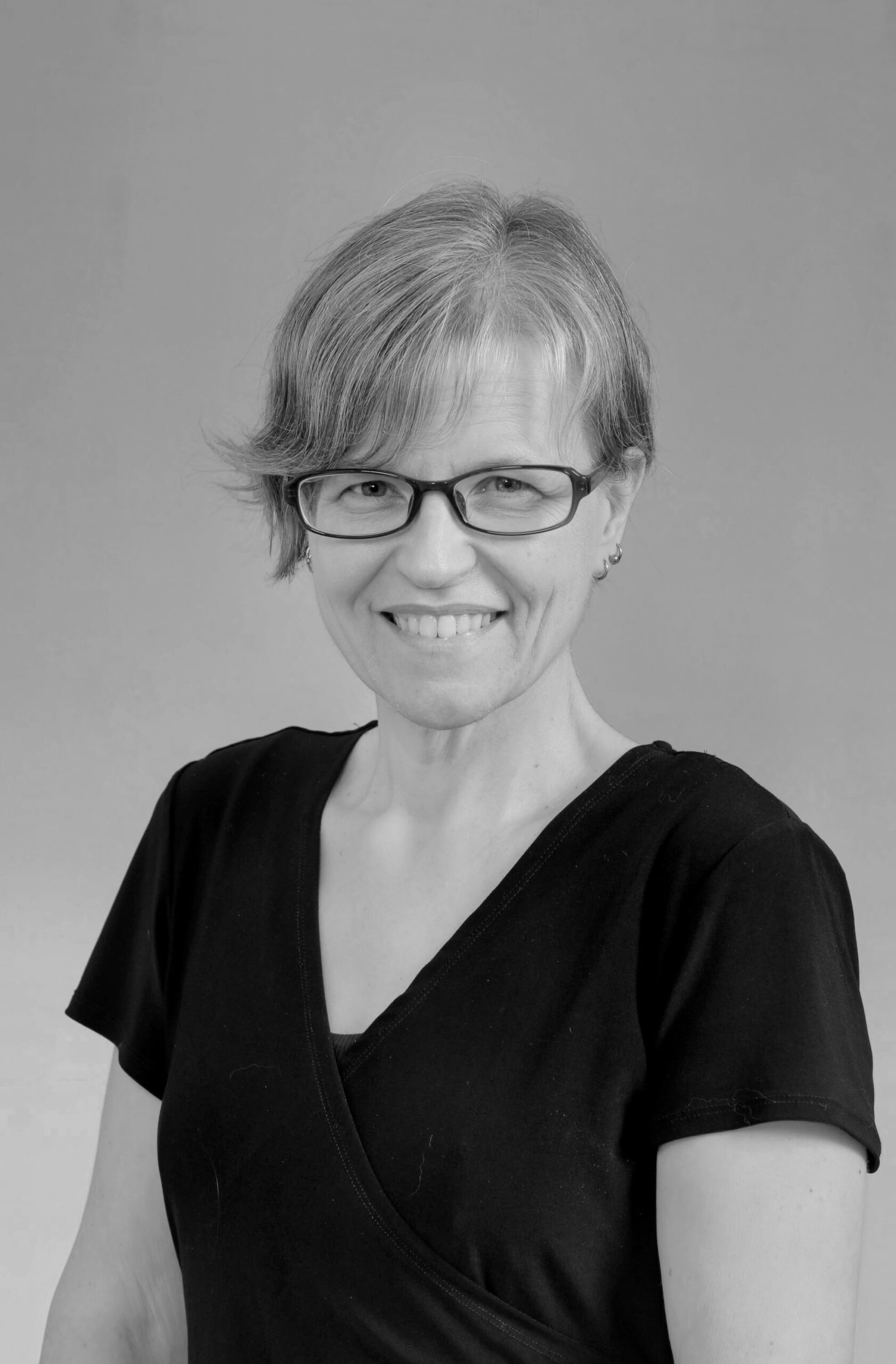Many years ago, I decided not to make any New Year’s resolutions because I have a terrible track record for keeping them. This, ironically, is the only resolution that I have ever kept.
Recently, I have found a way to achieve the same intended effect as a resolution by going about things quite differently.
Resolutions tend to be about taking a specific action: I’m going to save more money, spend more time with family/friends, exercise/diet/lose weight, etc. And they tend to involve a date like New Year’s Day or Monday as a starting point. However, I think there are two improvements that can be made here.
- The WHY needs to come before the WHAT.
- It’s not the starting date that is important, but the finishing date.
Let me explain…
Instead of giving yourself a list of things you are just going to be magically better at in the future, I would like to suggest that it is better to come up with a VISION OF YOURSELF on some SPECIFIC DATE IN THE FUTURE, and once you have done that (and not until you have done that), commit to doing ONE SMALL THING today to get yourself closer to that goal.
Here is an example of how this looks for me, right now.
Late last year, I decided that I wanted to become a coach and I gave myself a very realistic two and a half years to get there:
On August 1, 2025 (specific date), I will be a fully-accredited professional coach (vision of myself).
That means that I gave myself 30 months to achieve my goal from the point that I started. I think that is a very reasonable amount of time for that vision to come alive.
(By the way, I am not planning to quit my job! Becoming a coach will make me a better leader, and it is also something I can do on the side if I want.)
So, once I came up with the vision and timeframe, I started on my new path by deciding to do one small thing:
I will try to find a coach for myself to see if coaching really works, and if it is really something I want to do.
(In case you are wondering: It really does, and it really is!)
Then, building on what I learned from that experience, I took the next right step:
I will tell people about my idea of becoming a coach.
(This was super scary and it took me many weeks to build up to it, but now that it’s out there, I am not worrying about it anymore.)
Then, building on the confidence I gained from that experience, I committed to taking the next step:
I will choose a provider and sign up for training to become an accredited coach.
(It starts in April, and I am super excited about it!)
And then:
I will read whatever I can find and listen to many podcasts about coaching so I can decide what kind of coach I want to be and get a better sense of what the “coaching universe” is like.
And then:
I will commit to writing once a week so I am forced to do some good, deep thinking on topics related to coaching on a regular basis. Writing also helps me to keep myself open and vulnerable, which are leadership qualities that I think are important.
I will also commit to (Eek!) publishing my writing which helps me fight my perfectionism by forcing me to put something out into the world every week even when it’s not as perfect as I would like it to be (because nothing is ever as perfect as I would like it to be!).
(Writing also gives me a chance to reflect on what I am learning, and publishing what I write gives others a chance to get to know me, which may help when I am a coach and people are trying to decide whether or not to work with me as their thinking partner. They will be able to look through these articles and see what kind of person I am and how I think about things.)
And then:
I will commit to creating a podcast based on my writing, because as a voracious consumer of podcasts, I have always wanted to have one of my own, and because having an audio version of my writing makes it more accessible.
Etc., etc., etc.
So, I picked a very clear goal, I gave myself a reasonable and realistic timeframe for achieving it, and I started walking slowly towards the goal, which then gave me the momentum to push myself to take the next most logical steps.
This is very different from how I have done things in the past, which was more like:
- Decide to make some drastic change starting tomorrow.
- Make some drastic changes for a few days.
- Get bored or tired.
- Why am I doing this anyway?
- I deserve not to have to do this.
And one year later…
- Well, that didn’t work.
- I guess I will try again this year.
- Decide to make some drastic change starting tomorrow…
It’s important to note that if I had set myself a resolution on January 1 to “write more” or “make a podcast”, I probably would not have even started, or if I did, I would have given both up by now. Or I would have over-committed myself and already run out of steam. But by framing these activities in terms of a larger — but reasonable, and therefore quite possibly achievable — goal that I am working towards SLOWLY, I am actually able to get things done. And, furthermore, I think I have been even more productive than I would have been if I had just set the resolution to “write more” because knowing my “why” (becoming an accredited coach) is intrinsically motivating.
One more point that I would like to make here, and this one might be a bit controversial, is that I attribute my ability to think in this more strategic way to the fact that I am being treated for my addiction to food. Developing a healthier relationship with food has helped me improve my life in so many other ways beyond just losing weight. (And I have now lost more than 100 lbs over a year and seven months which is already some kind of miracle.) Because I am free of the cycle of addiction (at least for today, and every day when I make the choice to be in recovery rather than in addiction), I can think more realistically, and in a long-term way, and not just live my life in search of the next hit.
The connection between recovery from addiction and improvements in long-term thinking may not be clear or obvious to people who haven’t experienced it, so just take my word for it for now! Or just ignore that part of it doesn’t apply to you, or doesn’t ring true to you. I am just reporting on my experience, and I haven’t done any long-term studies to back up my opinion on this.
Getting back to my main point, let me summarize today’s idea:
Instead of deciding to make some drastic and somewhat random change “just because”, try to imagine yourself at some defined point in the future, like one year from now, or three years from now. What do you want your life to look like on February 11, 2024? Spell out what you want to be different by that date. Actually write it down somewhere. And then think about how can you START to get yourself there by taking one small action today.
You don’t have to win the race today. Just commit to taking the first step.




